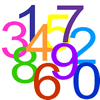
list
Shape, position and movement
This collection of tasks focus on the concepts of shape, position and movement.
list
Handling data
This collection of activities covers the areas of probability and collecting and analysing data.
